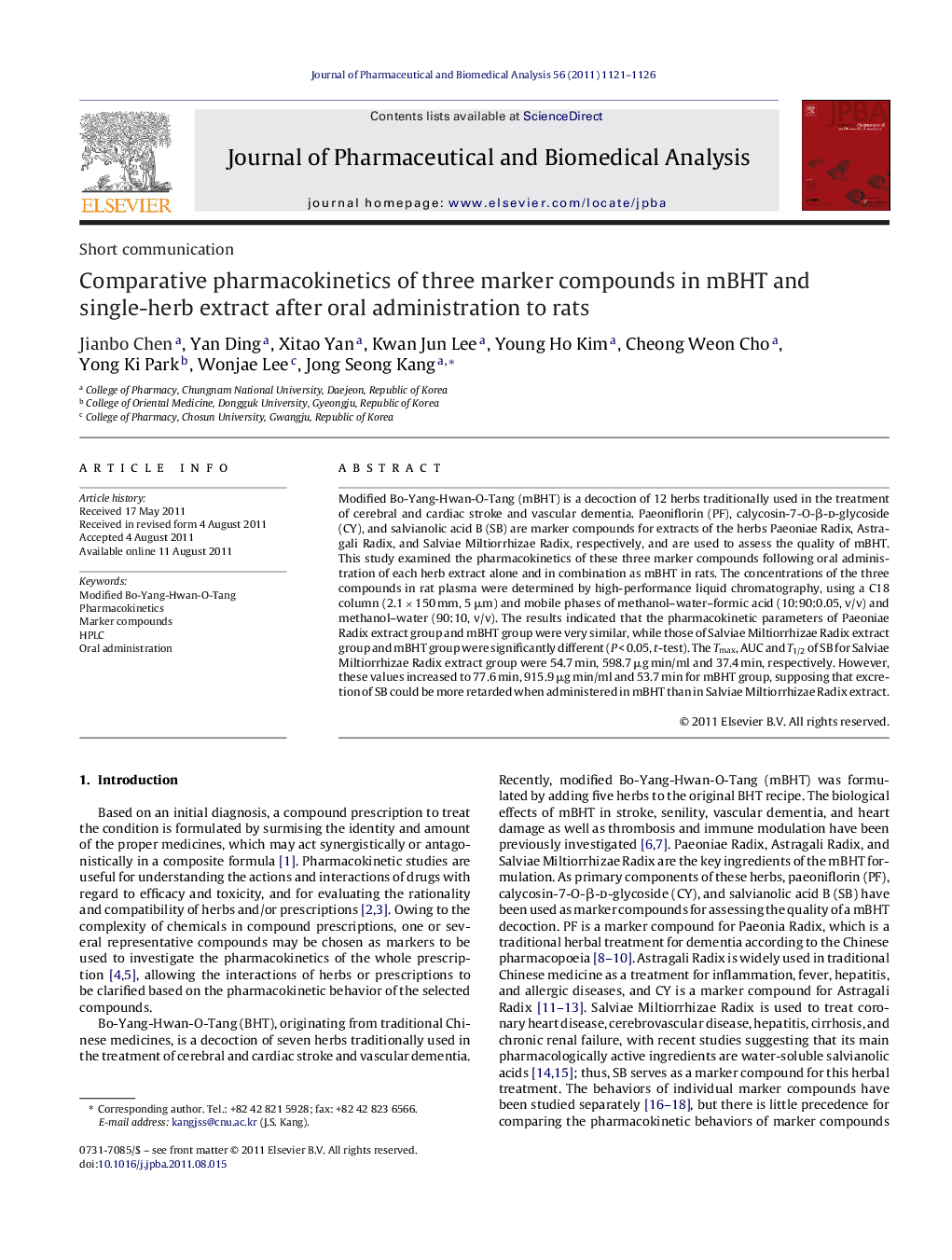| Article ID | Journal | Published Year | Pages | File Type |
|---|---|---|---|---|
| 1222253 | Journal of Pharmaceutical and Biomedical Analysis | 2011 | 6 Pages |
Modified Bo-Yang-Hwan-O-Tang (mBHT) is a decoction of 12 herbs traditionally used in the treatment of cerebral and cardiac stroke and vascular dementia. Paeoniflorin (PF), calycosin-7-O-β-d-glycoside (CY), and salvianolic acid B (SB) are marker compounds for extracts of the herbs Paeoniae Radix, Astragali Radix, and Salviae Miltiorrhizae Radix, respectively, and are used to assess the quality of mBHT. This study examined the pharmacokinetics of these three marker compounds following oral administration of each herb extract alone and in combination as mBHT in rats. The concentrations of the three compounds in rat plasma were determined by high-performance liquid chromatography, using a C18 column (2.1 × 150 mm, 5 μm) and mobile phases of methanol–water–formic acid (10:90:0.05, v/v) and methanol–water (90:10, v/v). The results indicated that the pharmacokinetic parameters of Paeoniae Radix extract group and mBHT group were very similar, while those of Salviae Miltiorrhizae Radix extract group and mBHT group were significantly different (P < 0.05, t-test). The Tmax, AUC and T1/2 of SB for Salviae Miltiorrhizae Radix extract group were 54.7 min, 598.7 μg min/ml and 37.4 min, respectively. However, these values increased to 77.6 min, 915.9 μg min/ml and 53.7 min for mBHT group, supposing that excretion of SB could be more retarded when administered in mBHT than in Salviae Miltiorrhizae Radix extract.
